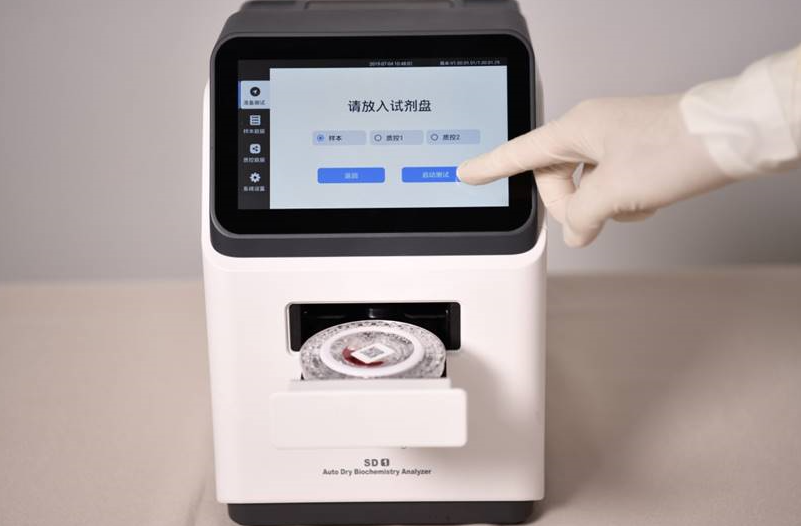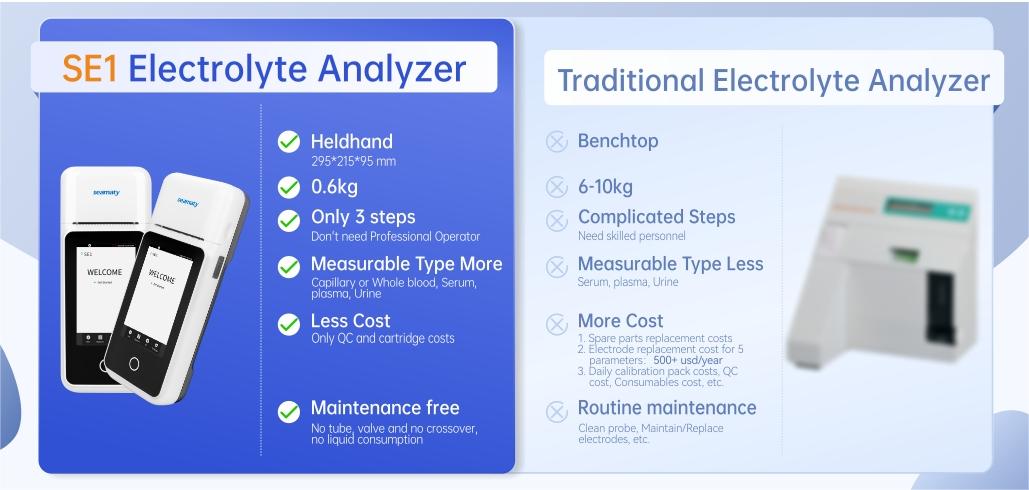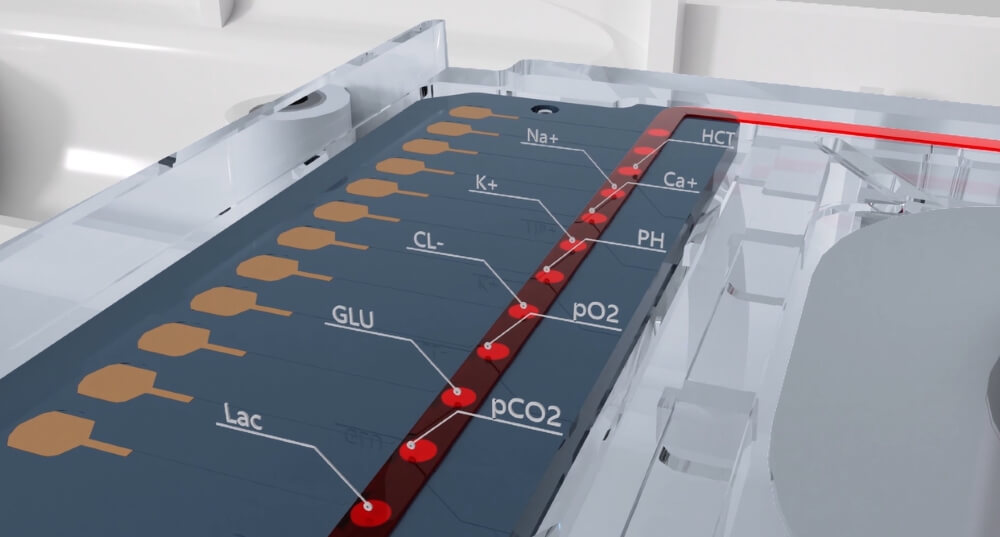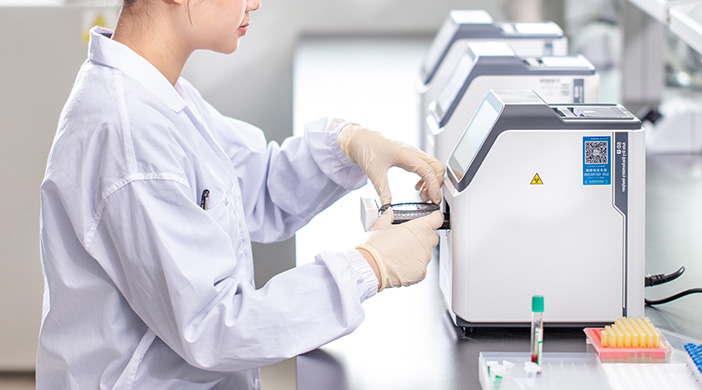There are various ways to classify biochemistry instruments according to different classification methods. However, according to the current market situation, biochemistry instruments can be simply divided into fully automated biochemistry analyzers and dry biochemistry analyzers (many small POCT biochemistry instruments also basically achieve fully automated operation).
This is also divided according to the reaction mode of biochemistry analyzer. The general fully automatic biochemistry analyzer is the liquid reaction type. The dry type biochemistry analyzer is, as the name implies, a dry reaction.
The development of biochemistry analyzers has gone through three stages, from the very first spectrophotometer to semi-automatic biochemistry analyzers, until now the universal application of fully automatic biochemistry analyzers. At present, there are many brands of biochemistry instrument, open system and closed system biochemical analyzer coexist, but many large manufacturers are leaning towards the closed type.
Automatic biochemistry analyzer and dry biochemistry analyzer

Automated biochemical analyzers are now more commonly used in hospitals, ranging from 400 to 1200 tests. Dry biochemistry analyzers can now basically do fully automated operation. Dry biochemistry analyzers are mainly used in small clinics, hospital emergency departments, some testing laboratories will also use, but most are still placed in the emergency department.
What are the mainstream manufacturers of biochemistry analyzers?
1. Roche: biochemical instrument are mainly closed system, can be reserved for part of the open channel.
2. Abbott: mainly to promote biochemical immune cascade, pipeline. Relatively few stand-alone machines.
3. Beckman: the original integration of Olympus. 2009, Beckman Coulter $792 million acquisition of Olympus Corporation's diagnostic business, the full line took over the Olympus clinical biochemical diagnostic business. This resulted in the integration of the two companies' chemical product lines into a complete chemical supply system.
4. Siemens: The original integrated Bayer biochemistry line. Siemens in the biochemical section, mainly to do the assembly line. 5.
5. Canon: the original Toshiba biochemical, later acquired by Canon. 6.
Hitachi: Hitachi is currently pushing the 008 series, before the 7600 series is also very classic.
Biochemical diagnostic field products are mainly automatic biochemical analyzer and biochemical reagents, consumables. In the whole
in vitro diagnostic market, biochemical diagnosis has been relatively mature and has entered a period of stable growth. At present, some hospitals have already realized biochemical and immunological composition related to the all-in-one machine and assembly line.



